“I was so much older then / I’m younger than that now” — Bob Dylan
For a limited time, if you order more than $25 from our store, you will automatically receive one free unit of Pfeiffer Compost Starter. Limited one per customer.
It is not enough to believe in the past. The future must always be born in us anew, day by day. As Rudolf Steiner suggests in Love and Its Meaning in the World, love is always “love of the not-yet.” If we only appreciate who someone (or something) was in the past, we have blocked ourselves from the future. But because I expect myself to be considered more than merely the sum of my past deeds, but also my future possibilities, I also find I must extend this charitable gaze to other people, other movements, and even institutions. The whole is always greater than the sum of its parts, as Aristotle says, and the past is only one part of us. To love people is to love who they are not yet — to love who they are becoming. To write someone off is to decide with finality that they have no future possibility for growth. But human beings are astonishing creatures. People who seem entirely lost can abruptly take a leap away from compulsive behaviors into a new kind of freedom. Without maintaining openness to the future of others, there is no possibility of forgiveness and no real possibility of love.
Biodynamics, as a way of holding open the door to the future, does not tell anyone how to farm — just as anthroposophy does not tell anyone how to live. “[T]here is never any question of ‘should’ or ‘shouldn’t.’ Anthroposophy is there to communicate truth, not to propagandize.”1 This is a difficult pill to swallow, particularly in an age inundated with fundamentalism, which is always fixated on clinging only to the codified past while shutting off openness to the life of the future. As Steiner admonished us, “We need cow-horns to carry out this work but not ‘bull-headed’ people to advocate the methods.”2 Our approach to the work, to the Earth, and to others should be one characterized by grace. Our work is not one of compelling anyone else by force but gently leading by example — a nearly homeopathic influence like that of sympathetic people who, by their mere presence, benefit society.
Biodynamics is the joy of waking each morning because it is a new day. When we wish for the day to be over, we have grown old. As the Little Prince says, “You know—one loves the sunset, when one is so sad . . .”3 It is our task to grow young again.
If we maintain a “beginner’s mind”4 and approach each new day not as a dreaded monotonous repetition of the old but as the center of genesis itself, we cannot help but marvel at the wonder of creation. This does not mean everything is easy, but that our love for the world becomes indefatigable even in the midst of opposition. The default mode of consciousness is one of enthusiasm. Just look at plants, who love to grow or animals who love their activities, or youths who love to play.
The eagerness to wake up, like a child on Saturday morning or Christmas day, is the heart of biodynamics. We are moving into the future of an “eternal childhood,”5 as Dr. Karl Koenig describes it, and we bring domesticated animals with us into that unfolding future. I remember somewhere Rudolf Steiner saying near the end of his life that it was time “to become young again.”6
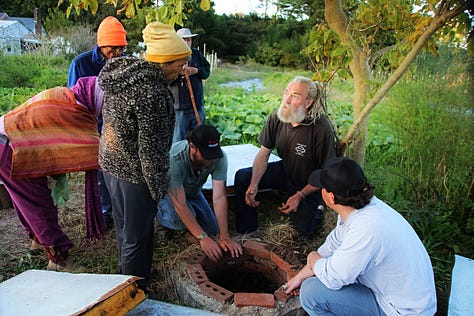
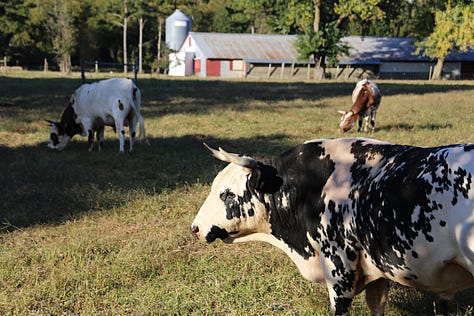
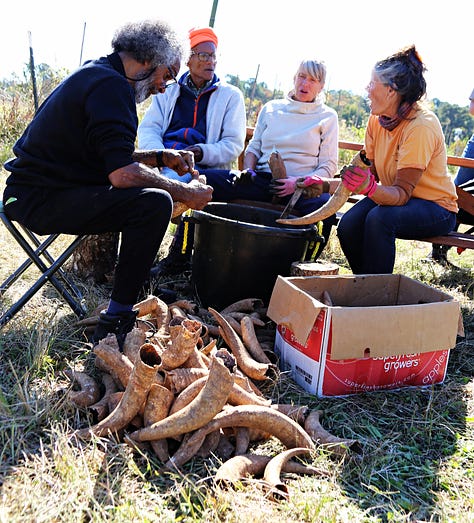
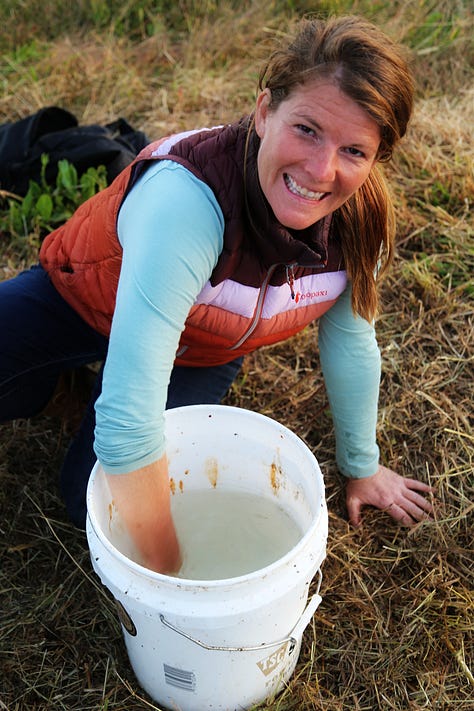
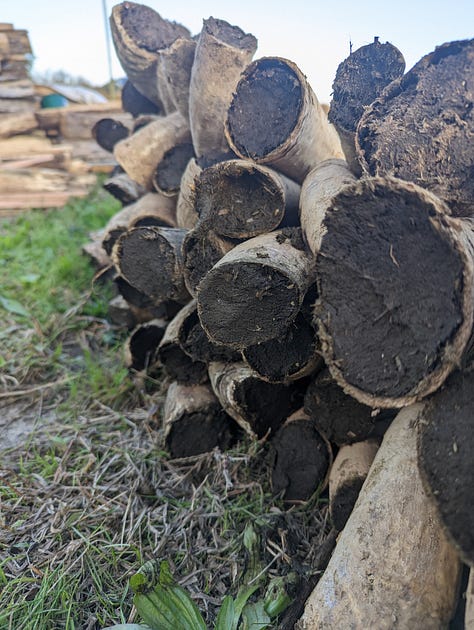
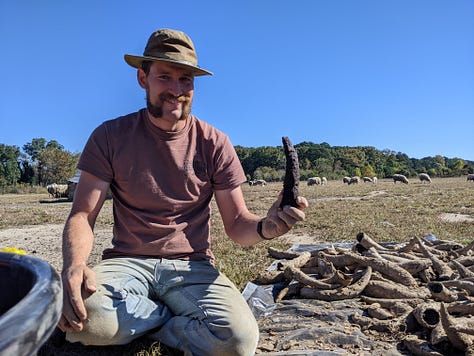
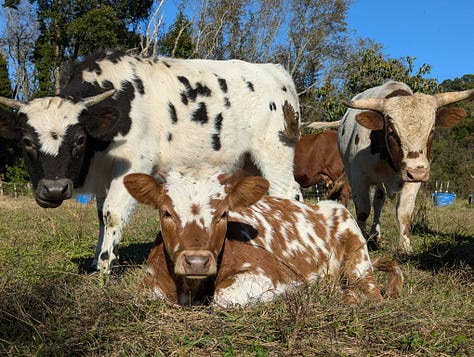
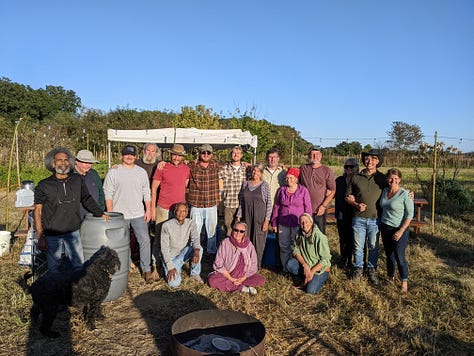
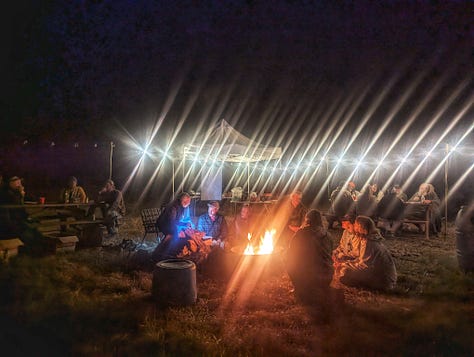
Biodynamics is a marvelous approach to farming inherited from the insights of a century ago. Biodynamics does not ask us to override sound agricultural practices but only adds to what already works beautifully. We could even go so far as to suggest that what Rudolf Steiner gave us in the Agriculture Course was not the full light of biodynamics, but was the morning star — a herald of a much brighter dawn. Steiner gave us only a tiny glimpse of what biodynamic agriculture will become, and the light from the future has already grown ubiquitous. Regenerative practices are no longer anomalies but an increasing glow blooming across our world. The light at work in biodynamics is the same light shining in every regenerative movement that seeks to love our common earth and to heal human relationships. Environmental concerns no longer belong exclusively to solitary voices crying in the wilderness. Our work is “the principle of springtime, i.e., that of creative spiritual élan and spiritual flourishing.”7
The light of dawn has grown brighter, so much so that the morning star of biodynamics can sometimes seem to become obscured. But the light reflecting from the morning star is the same light of the impending dawn. The approaching sunrise to eternity is so bright that it swallows up the variegated colors of dawn and subsumes the morning star entirely. The future of biodynamics is so bright that we will become invisible in its brighter light — and that is a beautiful anonymity. In that sunrise, we are mere rays of light. The etheric effects of our actions beam out, and live countless lives after this particular iteration seems to blink out. May we each be forgotten and rest peacefully in that greater sunrise, knowing our efforts helped usher in the new day.
It is our task to support those who are becoming new beacons of light around the world — to educate, support financially, and champion decentralized biodynamic preparation-makers. The work of the Josephine Porter Institute has supplied so much to so many people over four decades. Imagine a great light shining from the periphery, charging a great number of other sources of light to such a point that the secondary lights become brighter than the original source — each a new radiant star. Some might call this the mystery of incarnation. Such is the work of the Josephine Porter Institute: our light is here to facilitate you in your work and others in theirs as you become guiding lights for the future brighter than we ourselves can even imagine. For this, we thank you, and for this, we exist. We love who you are becoming.
Those of you who can contribute to this luminous work, we are undyingly grateful for your donations. Your gifts help facilitate workshops and enlighten a new generation of minds who have turned from a hardened way of life to one born out of the sacred way of the kindled heart. Your donations help sponsor underprivileged participants to attend our workshops. Your use of our preparations feeds an entire elemental world of unseen beings with your gracious recognition of what often goes unnoticed.
Your support helps us make much-needed infrastructure improvements. Yes, you help us spread this holy earth medicine across as much of the earth as possible — but there is something else your generosity does: you give meaning to lives that often may feel hollow. You awaken people to a new life, quickening everything they touch to blossom and proliferate. How can we thank you enough? We simply can’t. There is no future without you, and the future is so bright we can only hope to be tiny participants in that opulent sunrise. Thank you for your time, thank you for your financial support, thank you for your prayers, and thank you for who you are becoming.
Ways You Can Support Biodynamics
Donate securely online to the Josephine Porter Institute for Applied Biodynamics (one-time or recurring — everything helps our work)
Upgrade to a paid subscriber here on Substack (less than 27 cents a day goes a long way!)
What is Substack?
·Applied Biodynamics was created as a humble newsletter that grew into something much more over the years. After some three decades of printed issues, particularly given the rising costs of printing, we made the difficult decision to migrate the work online. Over the past two years, as we have made this transition, what has astonished us is the overwhelm…
Write a check to the Josephine Porter Institute and mail it to:
JPI
652 Thompson Road SE
Floyd, Virginia 24091Support the Spikenard Honeybee Sanctuary and their spiritual work tending the bee and bringing greater consciousness to the work
Donate to the Pfeiffer Center at the Threefold Community and their splendid educational work
Donate to the Goetheanum, the heart of anthroposophy worldwide
Visiting the Goetheanum
·“If you want nature to treat you well, you must treat nature well. If you start destroying nature, nature will destroy you, and this basic moral precept is fundamental in our present knowledge of ecology and conservation. What we know now about ecology points to the fact that nature exists in the most delicate balance, and that anything which tends to u…
Join the Fellowship of Preparation Makers.
FOPM 2024 Conference Experience
·You’d be hard-pressed to find a more curious group of individuals than the Fellowship of Preparation Makers (FOPM).
Donate to the Demeter USA
Buy biodynamic preparations and use them everywhere you can.
Make your own biodynamic horn manure
Update: Experimental 500 Horn Manure
·Here at JPI, we made chromas of fresh cow manure, buried (but untransformed) 500 horn manure, and transformed horn manure.
Consider including JPI in your will so our work continues to shine forth with your support for many years to come
Sponsor the Biodynamic Conference
Volunteer at a local biodynamic farm
Buy a CSA share from a farmer
Pray, meditate, and offer up intentions for biodynamics as a whole and JPI in particular, especially for all the hard-working farmers implementing the work.
There are countless other opportunities to contribute, and if you ever have an opportunity you’d like us to help promote, please reach out to us at stewart@jpibiodynamics.org
R. Steiner, Awakening to Community, GA257, 30 January 1923, Stuttgart
R. Steiner, Agriculture, Lecture IV, GA327 12 June 1924, Koberwitz
Antoine de Saint Exupéry, The Little Prince
Shunryu Suzuki
Karl Koenig, Earth and Man
I cannot locate the source of this quote. I suspect it was in journals from the folks who attended the original Agriculture Course
Meditations on the Tarot






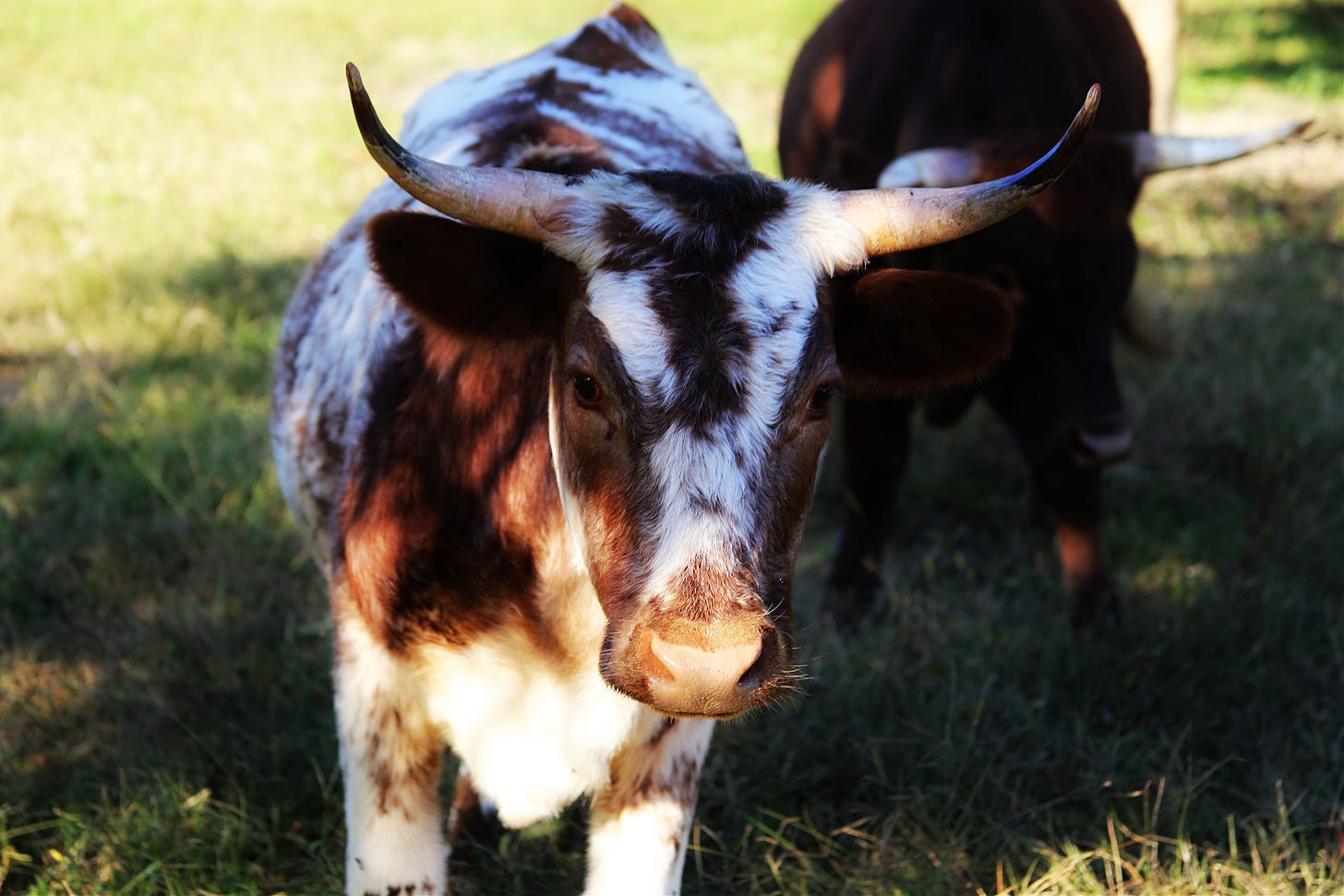
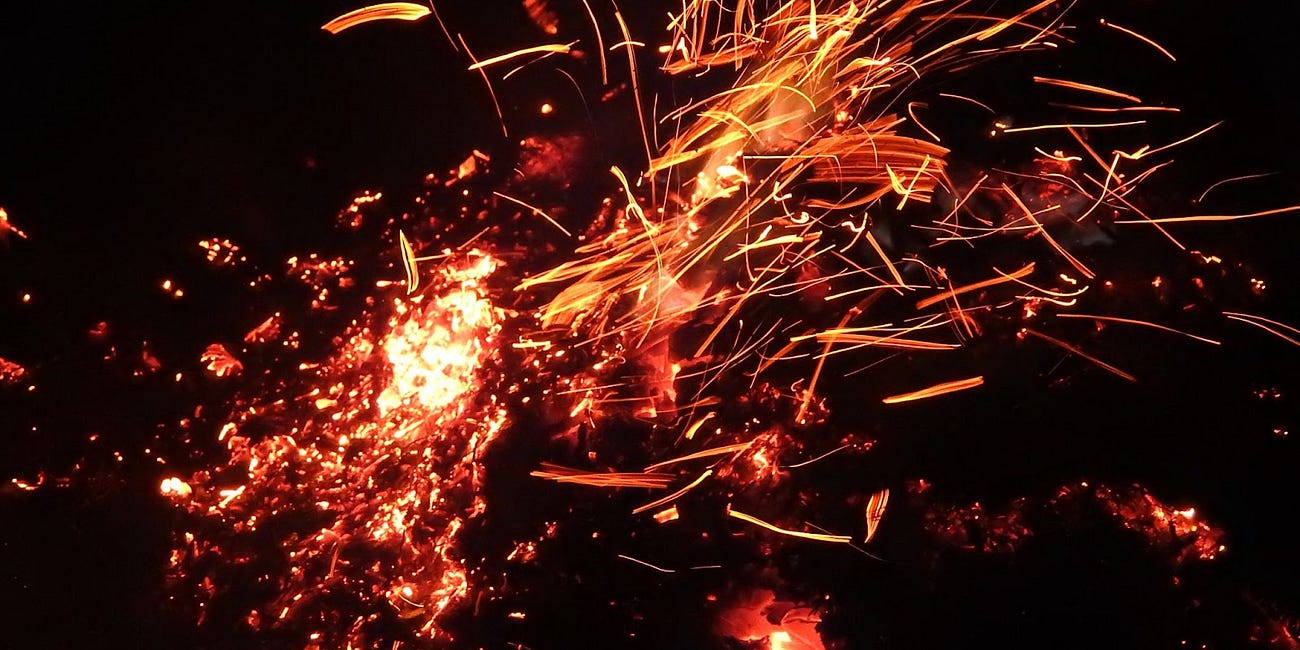


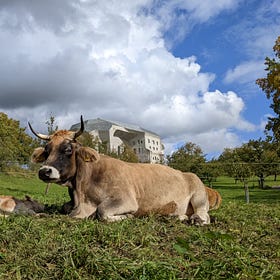
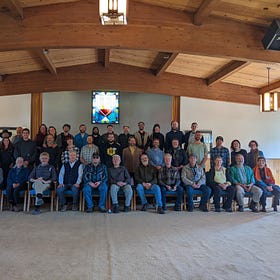

Thank you Stewart 🙏🏼 Your words are so powerful this morning as we await sunrise here in the West and I personally can attest to the light of inspiration that I’ve received from JPI over the last decade, helping me grow as a living human being on this earth. Looking forward to what lies ahead and beyond blessed to share in this journey with all of you as we celebrate Freedom and Love in each moment ❤️✨🔥
Beautiful
We are Being in Becoming
I don't need to tell you the profound Philosophical Alchemy that implies
But I would like to tell you that the Morning Star on June 7, 1924 was Mercury. And it was in the part of its cycle just past maximum elongation, so in the process of moving back toward the Sun, to eventually be subsumed by the Solar Light.
And so I think its beyond beautiful or even profound that you have just described the astronomical reality of the morning sky on the day in which Steiner first delivered us the seeds of Biodynamics.